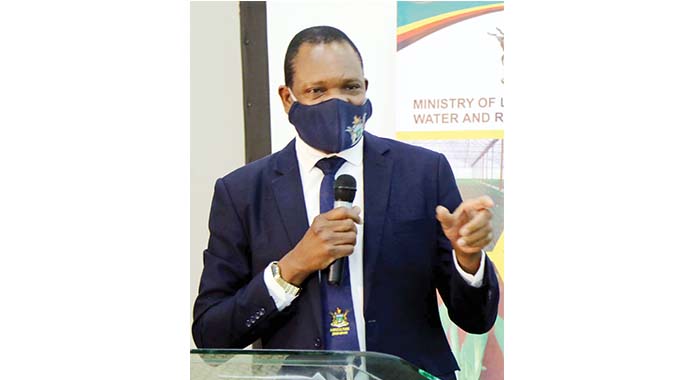
Rufaro Winter, Chronicle Reporter
FORTY-TWO percent of food insecure urban households benefited from the Government’s relief programme last year.
This is contained in the Zimbabwe Vulnerability Assessment Committee (Zimvac) 2020 Livelihoods Assessment Report which was tabled before Cabinet on Tuesday.
The report was tabled by the Lands, Agriculture, Fisheries, Water and Rural Resettlement Minister Dr Anxious Masuka.
The purpose of the Zimvac assessment is to provide an annual update on the livelihoods in Zimbabwe’s urban areas for the purpose of informing policy formulation and the programming of appropriate interventions.
Information, Publicity and Broadcasting Services Minister Monica Mutsvangwa said during a post-Cabinet briefing on Tuesday that the Zimvac report was released following a comprehensive review and analysis of relevant data involving 9 474 urban households from 38 cities, towns, service centres and Growth Points.
Minister Mutsvangwa said the survey was informed by participants’ education, social protection and chronic illnesses. The report was produced by Government ministries working in conjunction with developmental partners such as the World Food Programme, the United Nations Children’s Fund (Unicef) and the Food and Agriculture Organisation FAO and civic society organisations.
Minister Mutsvangwa said Government made several interventions to assist vulnerable urbanites who are food insecure.

Minister Monica Mutsvangwa
“Cabinet wishes to inform the nation that the Government has been actively responding to the prevailing food and nutrition insecurity among urban livelihoods, with at least 42 percent of urban households having received some form of support in 2020. Government will continue to mobilise more resources to support the vulnerable as well as upscale emergency support and resilience building efforts. Government will also continue to implement the urban cash-for-cereal system in view of the need to continue cushioning the vulnerable,” said Mutsvangwa.
She said the Ministry of Health and Child Care is working on modalities to ensure that medicines for chronic illnesses are accessible to the majority of patients.
The minister said Government is in the process of introducing a Health Insurance Fund which will ensure citizens get medicines at subsidised prices.
Minister Mutsvangwa said water and sanitation issues are a major concern for most urban dwellers and Cabinet has directed that no urbanite should live in a place that has no safe drinking water.
“Since sanitation is one of the major indicators used to measure the attainment of an upper middle-income economic status which Zimbabwe aspires for, the Government and its partners will intensify efforts to mobilise resources to ensure that there are proper ablution facilities in urban areas. Local authorities should also ensure that no people settle in urban dwellings which have no approved sanitation facilities. Government also wishes to report that substantial investment in water and sanitation services in all urban areas is being made,” said Minister Mutsvangwa. — @rufarovaraidzo
